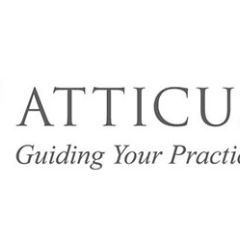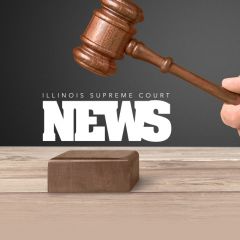ISBA members:
The health and safety of our members and staff is of the utmost importance to the ISBA. While developments related to COVID-19 continue to unfold, the ISBA is closely monitoring a variety of public health sources. In light of Friday's Executive Order, the ISBA's offices will be closed through April 7, but staff will continue to telecommute and member services will remain uninterrupted. We will not be having any in-person events, in-person CLE, or in-person business meetings through April 30.
ISBA members, sign up to receive The Bar News' biweekly e-newsletter by emailing emailpreferences@isba.org
-
March 23, 2020 |
ISBA News
-
March 23, 2020 | Practice News
 For decades, Illinois has been a popular legal destination for plaintiffs’ counsel looking to litigate their respective toxic tort cases and take advantage of what they believe are plaintiff-friendly exposure laws and sympathetic juries in certain venues. Many asbestos claims are filed on behalf of plaintiffs without any connection to Illinois. Most of these plaintiffs live, work, and claim to have been exposed in Indiana, Michigan, or Wisconsin; some plaintiffs come from farther away. Despite Illinois’ forum-non-conveniens stance having been settled by the Illinois Supreme Court since 2012, plaintiff firms continue to file case after case in Illinois courts. In addition to the out-of-state plaintiff filings, plaintiff firms have also brought many out-of-state defendants into Illinois asbestos litigation—“the name first ask questions later” approach, which, argues Craig Liljestrand in his March 2020 Illinois Bar Journal article, “Can Asbestos Ever Be Mitigated From Illinois Courts?” raises more than a few eyebrows from the defense bar familiar with Illinois Supreme Court Rule 137(a).
For decades, Illinois has been a popular legal destination for plaintiffs’ counsel looking to litigate their respective toxic tort cases and take advantage of what they believe are plaintiff-friendly exposure laws and sympathetic juries in certain venues. Many asbestos claims are filed on behalf of plaintiffs without any connection to Illinois. Most of these plaintiffs live, work, and claim to have been exposed in Indiana, Michigan, or Wisconsin; some plaintiffs come from farther away. Despite Illinois’ forum-non-conveniens stance having been settled by the Illinois Supreme Court since 2012, plaintiff firms continue to file case after case in Illinois courts. In addition to the out-of-state plaintiff filings, plaintiff firms have also brought many out-of-state defendants into Illinois asbestos litigation—“the name first ask questions later” approach, which, argues Craig Liljestrand in his March 2020 Illinois Bar Journal article, “Can Asbestos Ever Be Mitigated From Illinois Courts?” raises more than a few eyebrows from the defense bar familiar with Illinois Supreme Court Rule 137(a). -
March 18, 2020 | CLE
 Join us via live webcast from 11 a.m. until noon on Wednesday, April 1 to learn how having control over your time and understanding where to focus your efforts will help you grow a thriving law firm. You will market more profitably, train your staff more effectively, and get more time to spend with the people you love. In this webinar led by Mark Powers, Atticus founder and Certified Practice Advisor, you will learn easy-to-implement strategies to help you take back control over your time and focus so you can better manage your practice.
Join us via live webcast from 11 a.m. until noon on Wednesday, April 1 to learn how having control over your time and understanding where to focus your efforts will help you grow a thriving law firm. You will market more profitably, train your staff more effectively, and get more time to spend with the people you love. In this webinar led by Mark Powers, Atticus founder and Certified Practice Advisor, you will learn easy-to-implement strategies to help you take back control over your time and focus so you can better manage your practice. -
March 18, 2020 |
ISBA News
The profession is facing unprecedented challenges concerning the COVID-19 pandemic. Many firms have implemented work-from-home policies that encourage professionals to practice social distancing in an effort to quell the spread of the disease. Connecting with other attorneys and legal professionals is essential to staying up-to-speed with the latest legal updates, as well as judicial announcements and orders.
-
March 18, 2020 | Practice News
 Effective for anything filed on March 16 through March 31, 2020, the Illinois Supreme Court has approved relaxing the requirement in Paragraph 8a of the Supreme Court’s Electronic Filing Procedures and User Manual to give parties 14 days instead of the usual five days to provide the Court the 13 copies of certain e-filing documents.
Effective for anything filed on March 16 through March 31, 2020, the Illinois Supreme Court has approved relaxing the requirement in Paragraph 8a of the Supreme Court’s Electronic Filing Procedures and User Manual to give parties 14 days instead of the usual five days to provide the Court the 13 copies of certain e-filing documents. -
March 16, 2020 | Practice News
 Something was amiss in the Village of Barrington Hills—or so it seemed to a recent panel of the First District Illinois Appellate Court when it decided Drury v. The Village of Barrington Hills. The facts of the case prompted the court to weigh in on the constitutionality of a repealed zoning ordinance that regulated equine activity and put a new twist on the application of the LaSalle/Sinclair factors, which have been traditionally used to evaluate legislative zoning decisions. In his March 2020 Illinois Bar Journal article, "Horsing Around," Adam Kingsley examines how the Illinois Supreme Court has rejected other standards Illinois courts have used to evaluate facial challenges to zoning ordinances and also discusses the First District Appellate Court's suggestion that when a zoning ordinance is challenged, courts may now consider the reasoning and motives that lay behind the ordinance.
Something was amiss in the Village of Barrington Hills—or so it seemed to a recent panel of the First District Illinois Appellate Court when it decided Drury v. The Village of Barrington Hills. The facts of the case prompted the court to weigh in on the constitutionality of a repealed zoning ordinance that regulated equine activity and put a new twist on the application of the LaSalle/Sinclair factors, which have been traditionally used to evaluate legislative zoning decisions. In his March 2020 Illinois Bar Journal article, "Horsing Around," Adam Kingsley examines how the Illinois Supreme Court has rejected other standards Illinois courts have used to evaluate facial challenges to zoning ordinances and also discusses the First District Appellate Court's suggestion that when a zoning ordinance is challenged, courts may now consider the reasoning and motives that lay behind the ordinance. -
March 13, 2020 | Practice News
 The Illinois Supreme Court announced the filing of lawyer disciplinary orders on March 13, 2020. Sanctions were imposed because the lawyers engaged in professional misconduct by violating state ethics law.
The Illinois Supreme Court announced the filing of lawyer disciplinary orders on March 13, 2020. Sanctions were imposed because the lawyers engaged in professional misconduct by violating state ethics law. -
March 13, 2020 |
Practice News
The U.S. Attorney's Office Northern District of Illinois is accepting applications for an assistant United States attorney opening in its Asset Forfeiture Unit within the Criminal Division. The applicant selected will investigate and litigate criminal and civil asset forfeiture matters arising under a broad range of federal offenses, including, among others, health care fraud, drug trafficking, and money laundering, with the aim of taking the profit out of crime and returning property back to crime victims. Day-to-day responsibilities may include representation of the United States in federal court in hearings and trial, working with other AUSAs and law enforcement agents, research and writing on legal issues, negotiating case resolutions, and other litigation related duties. Applicants must possess a J.D. degree, be an active member of the bar (any jurisdiction), and have at least two years of post-J.D. legal experience. U.S. citizenship is required. Preferred qualifications include excellent academics, significant litigation experience, criminal law experience (for the Criminal Division), strong legal writing skills, and a demonstrated commitment to public service.
-
March 12, 2020 | ISBA News
 The Illinois State Bar Association (ISBA) has created an informational page about the impact of COVID-19 on ISBA meetings, events, and programs. While developments related to COVID-19 continue to unfold, the ISBA is monitoring a variety of sources, including the U.S. Centers for Disease Control, World Health Organization, Illinois Department of Public Health, and Cook County Department for Public Health, for the latest updates.
The Illinois State Bar Association (ISBA) has created an informational page about the impact of COVID-19 on ISBA meetings, events, and programs. While developments related to COVID-19 continue to unfold, the ISBA is monitoring a variety of sources, including the U.S. Centers for Disease Control, World Health Organization, Illinois Department of Public Health, and Cook County Department for Public Health, for the latest updates. -
March 12, 2020 | CLE
 Join us via live webcast from noon until 1 p.m. Thursday, April 2 to learn how to to be prepared for a professional investigation and analysis of a trip and fall claim. Plaintiff and defense attorneys working in the civil litigation arena with basic practice experience who attend this online seminar will better understand: the anatomy of a case and case intake; methods for handing these types of cases, regardless of the specifics of the claim; the considerations of a litigation and how to preserve evidence; how to file a complaint and respond to pleadings; how to obtain discovery; and effective resolution options.
Join us via live webcast from noon until 1 p.m. Thursday, April 2 to learn how to to be prepared for a professional investigation and analysis of a trip and fall claim. Plaintiff and defense attorneys working in the civil litigation arena with basic practice experience who attend this online seminar will better understand: the anatomy of a case and case intake; methods for handing these types of cases, regardless of the specifics of the claim; the considerations of a litigation and how to preserve evidence; how to file a complaint and respond to pleadings; how to obtain discovery; and effective resolution options.

